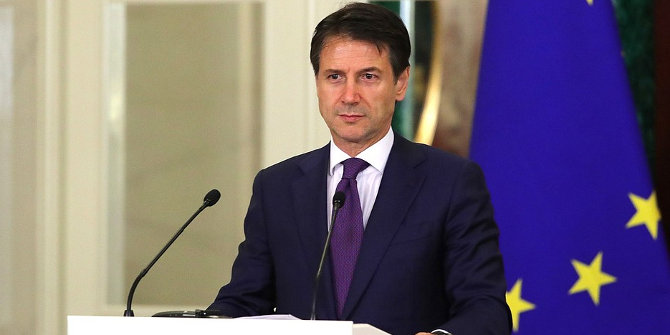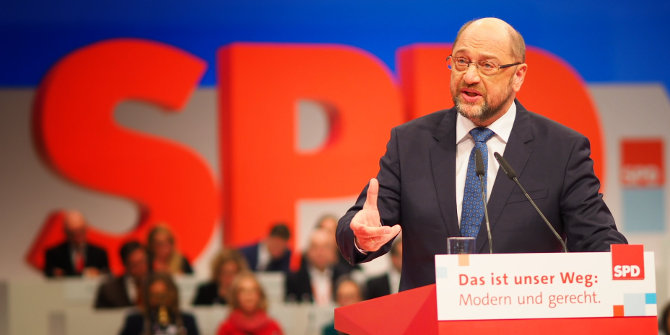 Following the murder of Russian opposition politician Boris Nemtsov, a commemorative march was held by tens of thousands of people in Moscow and other Russian cities on 1 March. Tomila Lankina writes on the contribution Nemtsov made to politics within Russia and what his death means for the country’s opposition movements.
Following the murder of Russian opposition politician Boris Nemtsov, a commemorative march was held by tens of thousands of people in Moscow and other Russian cities on 1 March. Tomila Lankina writes on the contribution Nemtsov made to politics within Russia and what his death means for the country’s opposition movements.
I first heard of Boris Nemtsov when I was a young Russian graduate student in America in the mid-1990s contemplating pursuing a PhD in Russian regional politics. For a new, post-Kremlinologist generation of political scientists, it was individuals like Nemtsov who made the study of Russian provincial politics fascinating and exciting.
In the post-Soviet hyper-federalist Russia of the early Yeltsin years, sub-national regions quickly emerged as powerful players in their own right, shaping regional and national politics. As a governor of the Nizhny Novgorod region, still only in his early thirties (he was only thirty two when he became Governor), Nemtsov was already a star – well before he entered national politics as Deputy Prime Minister. Nemtsov led the democratic transformation of the region, creating an atmosphere of political openness, attracting foreign investment, and supporting independent media and civil society.

To scholars of Russian regional politics, Nemtsov’s governorship is associated with the most vibrant period in the history of Russian federalism. I hesitate to use the expression ‘golden age’ because Yeltsin-era federal relations were also associated with ad hoc and preferential politically motivated deals with regional bosses that in some cases helped promote regional authoritarianism, nepotism, and corruption.
Yet regions like Nizhny stood out as islands of sub-national openness, while governors like Nemtsov helped keep in check excessive concentration of power in the national executive, shaping national policy and public opinion in the process. In 1996, he organised a signature campaign against the war in Chechnya, collecting one million signatures in the Nizhny Novgorod region on a petition to Yeltsin and calling on other regions to support his initiative.
Putin’s recentralisation drive of the early 2000s ensured that even the hitherto politically open regions would turn into vassal-like dependencies of the Kremlin, delivering blatantly fraudulent electoral support to the national incumbent. Back in the 1990s, however, the more politically competitive regions could and did shape national political landscapes. While other figures of that era such as Murtaza Rakhimov, Mintimer Shaimiev and Kirsan Ilyumzhinov – the long-serving presidents of Bashkortostan, Tatarstan and Kalmykia – will be associated in the public mind with patrimonialism and grotesque forms of neo-Soviet sub-national authoritarianism, Nemtsov will be remembered as a democratic, public-minded, governor.
Nemtsov’s subsequent career trajectory also mirrors the brief episode in Russia’s political history when talented, principled, democratic politicians could wield real power within the country. As a First Deputy Prime Minister in Yeltsin’s government, along with other democratic politicians, Nemtsov – once reputed to be Russia’s “most popular politician” – sought to steer the country to a level of international respectability, acceptance, and normality that have long since ceased to be features of Russian politics. Gone are the days when merit and leadership qualities could elevate individuals of Nemtsov’s calibre to national and international prominence. Many people of talent, like Nemtsov, have either left the corridors of Russian power at their own volition as a matter of principle, been forced out, or have opted to join the swelling ranks of Russia’s political émigrés residing abroad.
And yet, unlike many other regime critics who had been silenced or intimidated, Nemtsov was to become the leading opposition figure in the next chapter of Russia’s political history. This is the period when the Russian parliament became progressively ‘zombified’, with citizen inputs into public policy being increasingly institutionalised outside of the country’s formal political decision making processes. As a consequence, any attempts to influence politics and public policy had to acquire extra-institutional contours.
Again, Nemtsov was to emerge as one of the most prominent leaders of this risky and perilous process. Denied the possibility to engage in parliamentary politics, he sought to promote unity among the ranks of the fragmented and marginalised “extra-systemic” democratic opposition. Most importantly, Nemtsov kept street politics alive, helping to organise street marches and other extra-institutional avenues for citizens to articulate grievances, against the backdrop of rising militancy among anti-opposition movements.
Nemtsov took a principled stance on the annexation of Crimea at a time when such a stance was becoming unpopular not just among the wider public, but also among some of those one would previously consider to be ‘liberals’. Russia’s war in Ukraine was to be among the central rallying cries of the ‘Spring’ popular demonstration on 1 March that Nemtsov took the lead in organising, but was not destined to see.
Following Nemtsov’s brutal assassination, the demonstration became a commemorative procession, honouring his life and involving at least 50,000 people in Moscow, St. Petersburg, and in Russia’s other cities. Putin’s paranoid autocracy and his orgy of repression have not succeeded in exterminating the surviving islands of integrity, free spirit, and courage across the country. We Russians owe it to Boris Nemtsov for helping to keep the hope of democracy in Russia alive, and for reflecting on our own share of responsibility for making it happen.
Please read our comments policy before commenting.
Note: This article gives the views of the author, and not the position of EUROPP – European Politics and Policy, nor of the London School of Economics.
Shortened URL for this post: http://bit.ly/1Dvjxc5
_________________________________
 Tomila Lankina – LSE
Tomila Lankina – LSE
Tomila Lankina is Associate Professor in the Department of International Relations at the London School of Economics.





